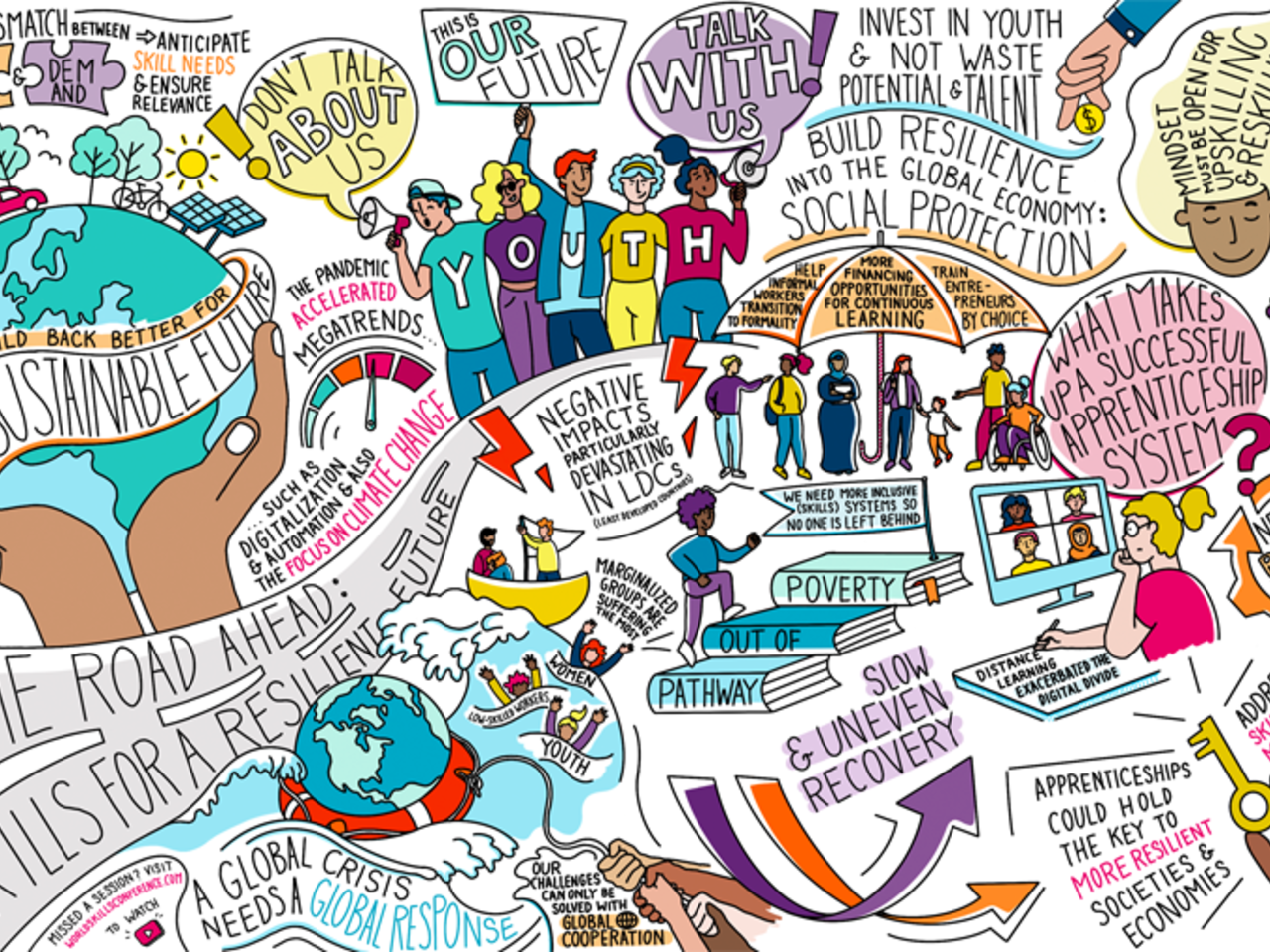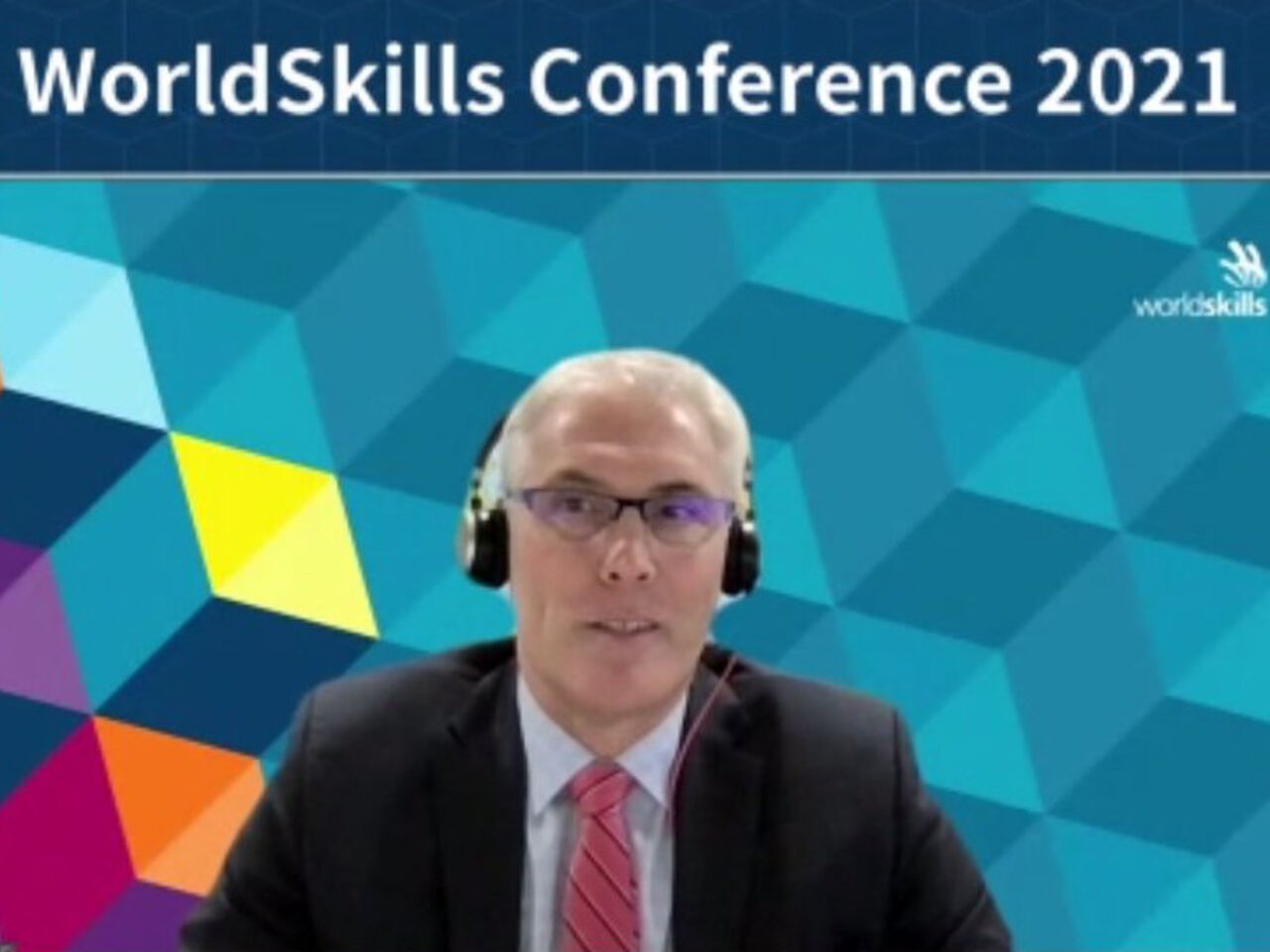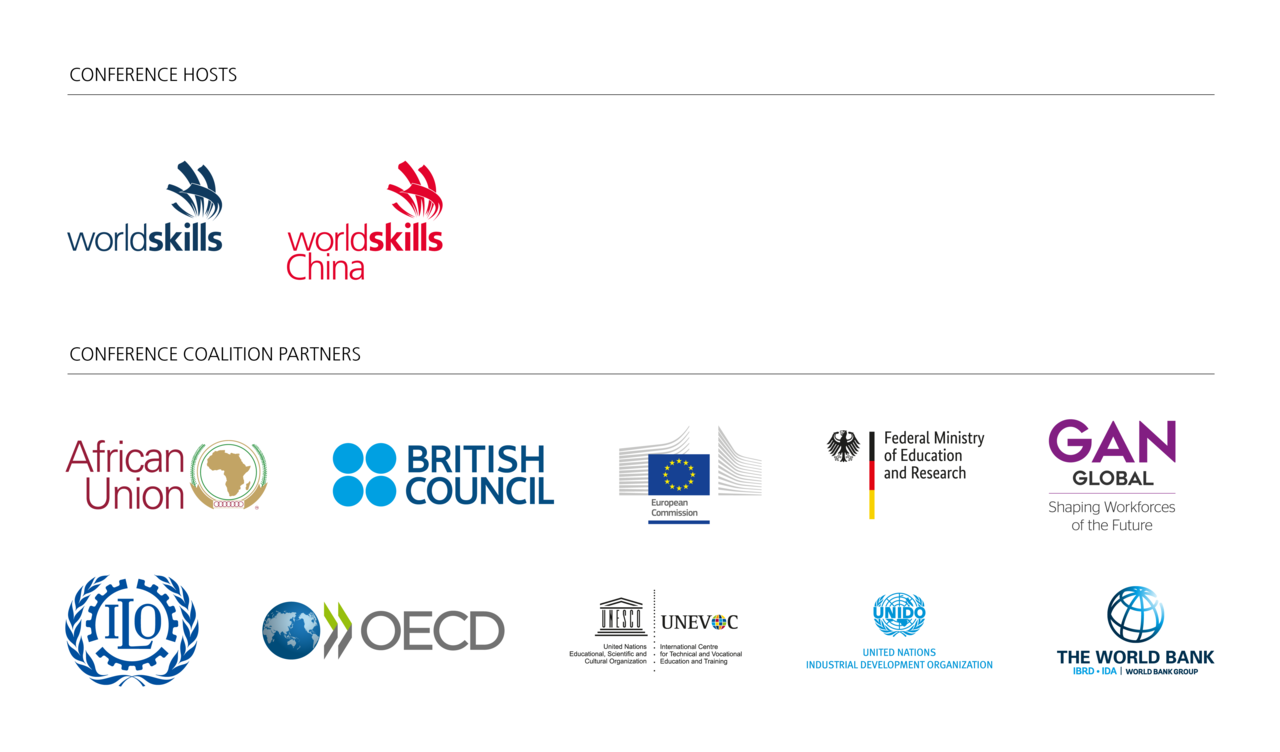The Road Ahead: Skills for a Resilient Future
This session examined innovative approaches and solutions that could guide the road to a more inclusive recovery.
The Road Ahead: Skills for a Resilient Future
25 - 29 October 2021
Experts and officials from international organizations and government, leaders of business and industry, as well as skills organizations and youth met for WorldSkills Conference 2021, to discuss the key topics in the global skills conversation.
With the COVID-19 pandemic as the backdrop for discussions in skills and beyond, our conference explored the future of VET, focusing on what can be learnt from the crisis.

The five-day hybrid event took place in Shanghai and online to allow as many international participants as possible to join.
The three main tracks of WorldSkills Conference 2021 explored global skills development for future generations.
As the world endures the battle against the COVID-19 pandemic and countries try to mitigate its devastating economic and social effects, climate change continues to be a pressing existential challenge.
+
Green skills must be given priority if we are to attain sustainable development. They are needed to minimize the use of resources, improve energy efficiency, reduce greenhouse gas emissions, promote recycling, produce environmentally friendly products, and protect the environment.
Green skills also encompass the technologies, knowledge, values, and attitudes required for green Jobs, developed through green training, and enhanced by green competitions. Thanks to the efforts of global, national, and local initiatives, green skills are gaining in recognition. However, they continue to require definition and clarification to be embedded in relevant policies and resources and lay the grounds for more effective international cooperation.
Undereducation is both a cause and consequence of poverty. Vocational skill training can be the gateway to decent work, self-employment, and entrepreneurship.
+
Quality and targeted vocational education breaks the intergenerational transmission of poverty and curtail the overall incidence of poverty at the regional level. The benefits of skills development in increasing general income levels are pushing countries – particularly developing countries – towards investing in VET. The pandemic has reversed much progress on advancing access to healthcare, education, and skills which had taken years to achieve, making it even harder to realize the goal of reducing extreme poverty to less than 3 per cent by 2030. This track explores how specific vulnerable groups can be equipped with skills, what are the necessary policies at a national level, and how certain populations can be prevented from falling into the technology and skill gap.
As an important form of VET, apprenticeships combine work and study, and provide opportunities for young people and workers to improve their skills, acquire work experience, and earn a proper income.
+
Different examples show how countries are developing models adapted to national circumstances. Based on past efforts and outcomes, many countries are proactively improving apprenticeship with different methods, such as industry-institutional partnerships. However, the stages of development of apprenticeship systems vary widely from country to country. The high cost bore by enterprises affecting their motivation to participate is a key challenge. This track aims to bring different perspectives to the table - the policy level, the initiatives of international organizations, and the voice of the productive sector - to discuss the next steps to improve apprenticeship systems and make them relevant in the post-pandemic era.

15 December 2021

1 December 2021

29 October 2021

28 October 2021
Join thousands of other people staying up to date with the WorldSkills Conference with our newsletter.
WorldSkills Conference 2021

